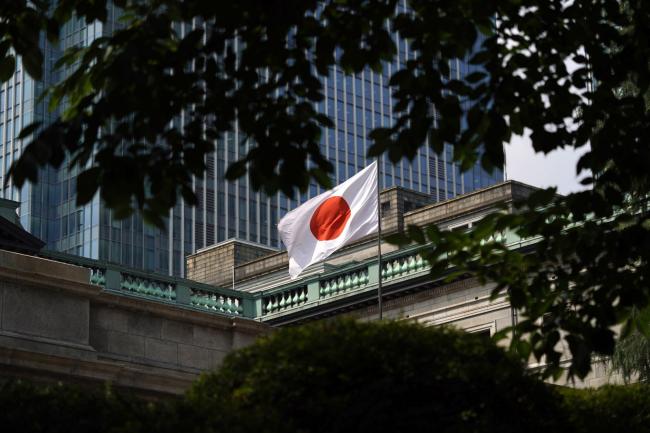(Bloomberg) -- Equity strategists will be keeping a close watch on the Bank of Japan this Thursday, in what may be one of its most anticipated monetary policy decisions. While the BOJ is likely to refrain from adding further stimulus at the meeting, equity strategists have varying views on whether the central bank will adjust its ETF purchase program.
- The BOJ has a 6 trillion yen ($55 billion) annual target for its purchases of equity exchange-traded funds, and a goal of 90 billion yen for J-REITs
- The central bank first announced in April that it may introduce a lending facility for its ETF buying program, which would temporarily lend ETFs to market participants
- On Wednesday, the Nikkei reported that the BOJ will start lending ETF shares as early as next spring
- In a survey conducted by Bloomberg, 3 out of 45 economists said the BOJ’s ETF target may be raised on Oct. 31
- READ: Oct. 29, At BOJ Meeting, Bulls Eye Reasons to Shore Up on Bank Stocks
- Increase in ETF purchases seems less likely, analysts including Ikeda wrote in a note dated Sept. 30; Nomura confirmed the view on Oct. 23
- There are issues such as BOJ’s impact on market cap and trading value of some stocks, and difficulty to put forward a future exit policy for non-redeemable equity ETFs
- One approach to minimize perception that lower rates will hurt bank stocks could be to further decrease the weighting of ETFs that track the Nikkei 225
- This could keep in check the negative effects of additional easing and alleviate disadvantages for bank stocks, which are underweight in ETFs tracking Nikkei 225
- “Even if the BOJ doesn’t cut rates deeper into negative territory, there’s a possibility they will adjust purchases of Nikkei 225-tracking ETFs,” as purchases distort supply and demand, Ikeda said in an interview
- Central bank standing pat “would leave an impression that the BOJ is already out of ammunition, unlike other central banks,” economists including Yamaguchi wrote in an Oct. 23 note
- Forecasts easing package to include 10bps cut in short-term policy and side effect countermeasures, as well as increase in ETF purchasing by 1t yen to 7t yen
- If the BOJ were to create a lending facility for its ETF buying program, liquidity in the market would increase, said Imai, head of Nikko Asset’s ETF Center
- Lending program would also help liquidity in the spot and options market
- “Market makers that borrow and then sell the ETF will have to turn to the spot market to assemble a package to return to the lender,” he said. “This may mean that the spot market will also become more active with the lending program.”
- “The BOJ’s idea of lending ETFs is good if it increases liquidity”
- Regarding the Nikkei report on a BOJ ETF lending plan, “the idea of lending decisions made once a month is less good.”
- “Stock lending is a continuous market and ETF lending decisions should be of higher frequency than ETF creation/redemption calendar days, or it may make less sense.”
